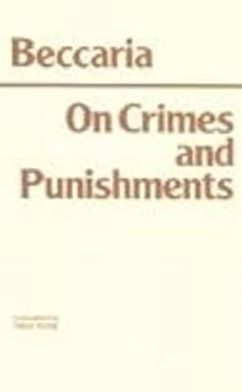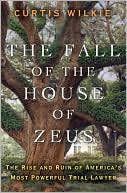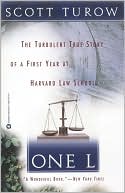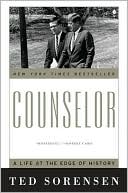On Crimes and Punishments
Punishment and Social Structure originated from an article written by Georg Rusche in 1933 entitled "Labor Market and Penal Sanction: Thoughts on the Sociology of Criminal Justice." Originally published in Germany by the Frankfurt Institute of Social Research, this article became the germ of a theory of criminology that laid the groundwork for all subsequent research in this area. Rusche and Kirchheimer look at crime from an historical perspective, and correlate methods of punishment with...
Search in google:
Becarria's influential Treatise On Crimes and Punishments is considered a foundation work in the modern field of criminology. As Newman and Marongiu note in their introduction to the work, three master themes of the Enlightenment run through the Treatise: the idea of the social contract, the idea of science, and the belief in progress. The idea of the social contact forms the moral and political basis of the work's reformist zeal. The idea of science supports a dispassionate and reasoned appeal for reforms. Th e belief in progress is inextricably bound to the idea of science. All three provide the necessary foundation for accepting Beccaria's proposals.It is virtually impossible to ascertain which of several versions of the Treatise that appeared during his lifetime best reflected Becccaria's own thought. His use of many ideas of Enlightenment thinkers also makes it difficult to interpret what he has written. While Enlightenment thinkers wanted to break the chains of religion and advocated free men and free minds, there was considerable disagreement as to how this might be achieved, except in the most general terms.The editors have based this translation on the Francioni (1984) text, by far the most exhaustive critical Italian edition of Dei delitti e delle pene. This edition is undoubtedly the last that Beccaria personally oversaw and revised. This new translation, which includes an outstanding opening essay by the editors, is a welcome introduction to Beccaria and to the modern beginnings of criminology.
Introduction to the Treatise viiA Note on the Text lviiBiographical Note lxviiTitle Page 1To the Reader 3Introduction 7§ I The Origin of Punishments 9§ II The Right to Punish 11§ III Implications So Far 13§ IV The Interpretation of Laws 15§ V The Obscurity of the Laws 17§ VI The Proportion between Crime and Punishment 19§ VII Errors in the Measurement of Crime 23§ VIII The Classification of Crimes 25§ IX Honor 27§ X Duels 29§ XI Disturbing the Peace 31§ XII The Purpose of Punishment 33§ XIII On Witnesses 35§ XIV Evidence and Forms of Judgment 37§ XV Secret Accusations 39§ XVI Torture 41§ XVII Revenue Authorities 47§ XVIII Oaths 49§ XIX Prompt Punishment 51§ XX Violent Crimes 53§ XXI Punishing Nobles 55§ XXII Theft 57§ XXIII Public Condemnation 59§ XXIV Political Indolence 61§ XXV Banishment and Confiscation 63§ XXVI On the Spirit of the Family 65§ XXVII The Mildness of Punishments 69§ XXVIII The Punishment of Death 71§ XXIX Preventive Detention 77§ XXX Criminal Proceedings and the Statute of Limitations 81§ XXXI Crimes Difficult to Prove 83§ XXXII Suicide 87§ XXXIII Smuggling 91§ XXXIV Debtors 93§ XXXV Sanctuaries 95§ XXXVI Bounties 97§ XXXVII Attempts, Accomplices, Pardons 99§ XXXVIII Suggestive Interrogations, Depositions 101§ XXXIX On a Particular Kind of Crime 103§ XL False Ideas of Utility 105§ XLI How to Prevent Crimes 107§ XLII On theSciences 109§ XLIII Judges 113§ XLIV Rewards 115§ XLV Education 117§ XLVI On Pardons 119§ XLVII Conclusion 121Endnotes 123References 149








